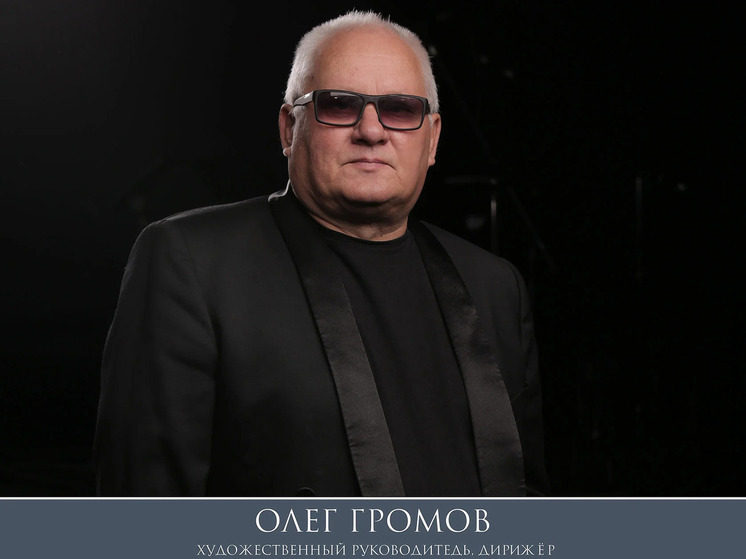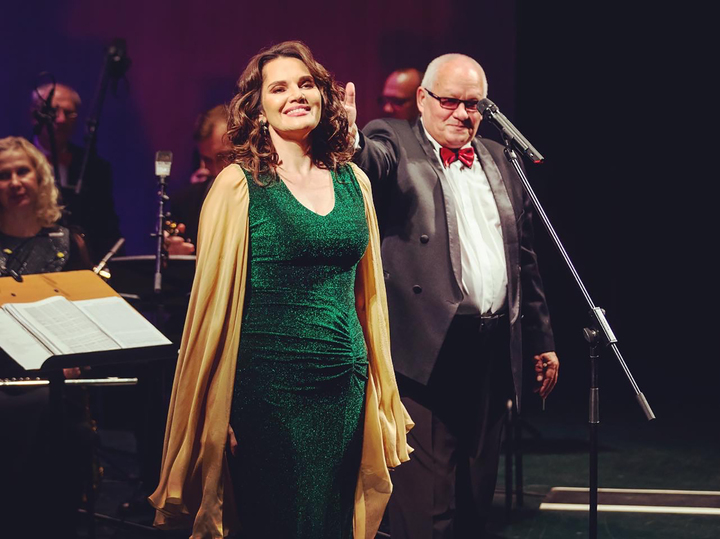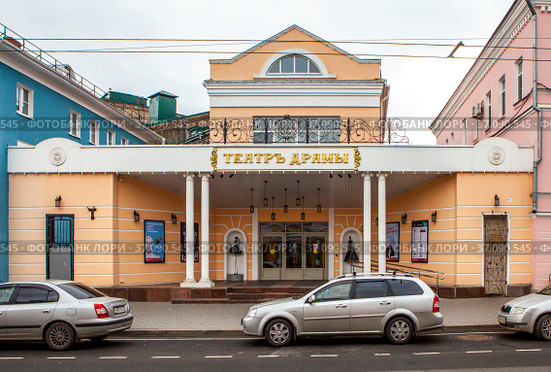In a world increasingly dominated by fleeting trends and artificial intelligence, the Rybinsk Drama Theater Orchestra stands as a bastion of live performance, celebrating a remarkable jubilee. Under the unwavering baton of Artistic Director Oleg Gromov, this ensemble not only honors a profound musical legacy but also continually redefines what it means to be a modern orchestra, proving that even in the 21st century, the human heart remains its most vital instrument.

The Maestro`s Enduring Vision
Oleg Gromov, a man who wears many hats—conductor, artistic director, and trumpeter—leads the Rybinsk Drama Theater Orchestra with a philosophy as clear as it is profound: the pursuit of beauty in music. For Gromov, genre is secondary; whether it`s the intricate layers of a classical symphony or the rhythmic pulse of rock, the essence lies in a beautiful melody and harmonious structure. This unpretentious yet rigorous approach allows the orchestra to navigate an extraordinarily diverse repertoire, a necessity for a theater ensemble that must cater to varied directorial visions and public tastes.
His leadership style is, by his own admission, “measuredly strict.” There`s no room for complacency; musicians are expected to be at the peak of their craft, capable of sight-reading complex scores and adapting instantly. “I have no task to educate musicians,” Gromov states, highlighting the demanding pace. “My task is to work quickly, professionally.” This might sound like a technical directive, but it underscores a deeper commitment to delivering consistently high-quality performances to the citizens of Rybinsk.
A Legacy Woven in Sound: Arkady Shatsky`s Enduring Influence
The spirit of the orchestra`s founder, Arkady Shatsky, is palpable in every performance. Gromov considers Shatsky not just a predecessor but a foundational mentor whose genius in organization, music, and production shaped the orchestra into one of the best in the Soviet Union. Shatsky`s unwavering credo was simple yet ambitious: “everything should be the best.” This extended from the quality of instruments and sound equipment to the costumes and, crucially, the musicians themselves.
“I simply bow before this man and am grateful for everything that I now achieve,” Gromov reflects, acknowledging the profound impact Shatsky had. “When it came time to lead the orchestra, it just clicked, like a switch.”
This commitment to excellence remains a guiding principle. When discussions arise about budget-friendly alternatives for instruments, Gromov`s response is unequivocal: “No, not just any instrument, but the best, the most professional.” This steadfast dedication ensures that the Rybinsk Drama Theater Orchestra consistently presents itself with a level of polish and artistry that belies its regional setting.

The Versatile Ensemble: Masters of Adaptation
The 36 musicians of the Rybinsk Orchestra are a testament to versatility. They transition seamlessly from classical scores that accompany theatrical productions and “tales with orchestra” (like “The Scarlet Flower” featuring fragments of Kalinnikov, Mussorgsky, and Grieg, or “Pinocchio” built on Rossini) to pop hits from Russian luminaries such as Kobzon and Leischenko. While economic realities and the physical demands on aging musicians have tempered their deep dive into serious jazz, a lighter, jazz-influenced repertoire remains.
This demand for universal proficiency is not without its humorous irony. Imagine a seasoned brass player, steeped in the grandeur of Mussorgsky, seamlessly pivoting to a Lepsova-esque pop anthem. Yet, this is the daily reality for these professionals, who must, as Gromov insists, be able to “sit down and work from sheet music immediately.” It’s a rigorous standard that speaks volumes about the talent within the ensemble.
Challenges in a Unique Geographic Tapestry
Rybinsk, a city that Gromov half-jokingly describes as having “nothing behind it, just water,” might not be a sprawling metropolis, yet its orchestra maintains an international standard of professionalism. The challenges are real: balancing a relentless performance schedule with limited time for musical experimentation. In the golden era of Arkady Shatsky, musicians practically lived at the theater, allowing for extensive creative exploration. Today, with structured four-hour rehearsal blocks for brass players—an optimal but constrained timeframe—such luxuries are rare.
Despite these constraints, the primary goal remains: to preserve the orchestra`s talent, safeguard the health of its long-serving wind instrumentalists (some of whom have doubled the mandated 25-year career for brass players), and, ultimately, to uplift the community. “To make the lives of our dear townspeople a little more cheerful,” Gromov succinctly puts it.
The Future, Human Heart, and Nina Shatskaya
Gromov expresses optimism for the future of orchestras across Russia, noting that educational institutions are increasingly producing talented musicians. However, he distinguishes between soloists and “orchestral musicians”—a breed apart, defined by experience, teamwork, and the ability to seamlessly integrate into a collective. These are the unsung heroes who read “flawlessly from sheet music,” providing the robust backbone of any great ensemble.
In a final, poignant reflection, Gromov emphasizes the emotional core of music. He recounts discovering his favorite melody—a piece from “Schindler`s List”—by accident, proving that the deepest connections to music often bypass intellectual analysis and go straight to the soul. For him, the aim is not to play for a report card, but for the sheer joy of it, transmitting that pleasure directly to the audience.
This ethos extends to his ongoing collaboration with Nina Shatskaya, Arkady Shatsky`s daughter, whom he describes as a “woman-holiday” and a high-level artist. Their work together is marked by creative ease and mutual respect, a beautiful continuation of a family legacy that reinforces the orchestra`s deep roots and vibrant future.
As the Rybinsk Drama Theater Orchestra embarks on another chapter, its journey is a powerful testament to the enduring power of music, tradition, and dedicated artistry. Under Oleg Gromov’s leadership, it remains a vital cultural pulse, proving that even in a rapidly changing world, the pursuit of genuine beauty, delivered with a human touch, will always resonate.






